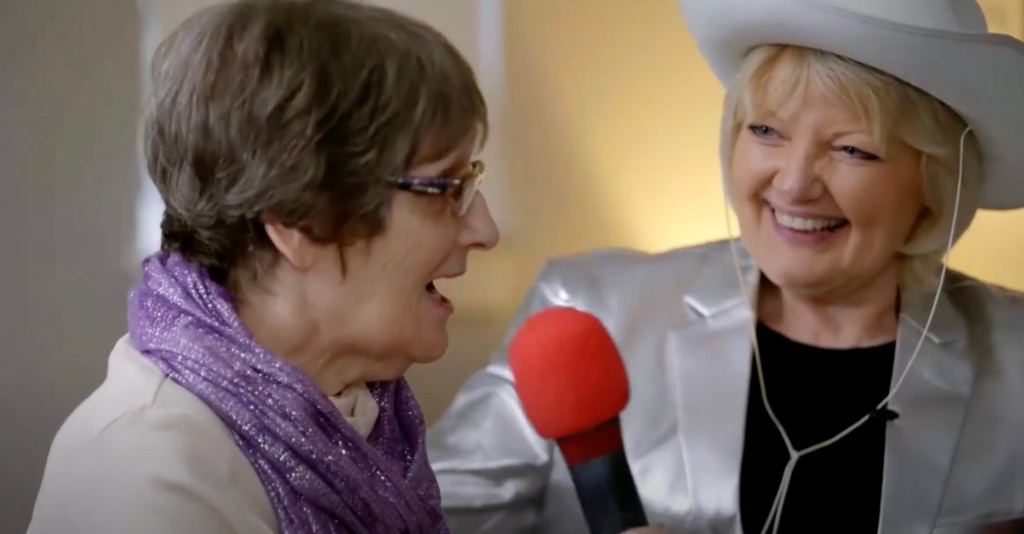
As an academic in the field of drama, theatre and performance I’m a strong advocate for the efficacy of both watching and participating in performance and, in my experience, I’ve seen powerful examples of individuals benefitting from it from in a number of ways. There’s solid evidence for drama being a powerful tool in the school curriculum, of its potential for improving skills and confidence in communication, collaboration, and learning through drama (see Heathcote 1991). In other words, drama and performance teaches us about the world in which we live and gives us tools with which to express our experience of this world.
But what about drama in other contexts? There’s a whole field of work dedicated to a applied theatre, in which dramatic activities are used in settings ranging from community groups to prisons to hospitals (see Nicholson 2015). In my own research, I’ve seen how applied theatre can have a positive impact on young people. For example, in using drama to educate about suicide prevention, I found there is a clear benefit in using performance to open conversations that might just save lives. My interest in applied theatre and its potential for change led me to the Finding Our Voice Project, in which I collaborated with colleagues at UWS and At Home At The Theatre to explore the potential for performance in enhancing the lives of People Living With Dementia.
My interest in this area of research began in 2020, when I was introduced to the work of At Home At The Theatre, an Ayrshire-based theatre company (and registered charity), whose work in dementia care settings has given them a level of expertise in theatre and dementia. The company’s Creative Director – Jane Ross – had decided to return to university at this time, and as I learned about the company’s work as supervisor to both Jane’s undergraduate and MRes dissertations, we’ve developed a strong collaborative partnership. As a result of this, Jane and I developed a project proposal to explore how participatory performance can be used in dementia care settings. Participation in performance, as noted by various scholars, is an essential ingredient. When we watch a performance, as audience members we laugh, cry, or applaud and, as such, all live performance is participatory because audiences ‘are affected emotionally, cognitively and physically by the action they witness’ (White 2013: 3). This, of course, doesn’t always guarantee that meaningful engagement is taking place. In learning about Jane’s work with At Home At The Theatre, we discussed how often dementia care home entertainment can be a passive experience for the audience and this is something that we were keen to address. At Home At The Theatre’s shows have always been interactive and they have a finely tuned philosophy about what works, what doesn’t, and why. However, we wanted to take this further and really explore performance in which genuine participation takes place.
At the forefront of the project design was individual agency and that, for the work to be truly purposeful, the performances or – as we termed them – ‘workshops’ needed to focus on a process of co-creation with the care home residents. We weren’t, therefore, concerned with roles of ‘performers’ and ‘audience members’; rather, we wanted the experience to be one of working together, towards a collective aim.
Over a period of five weeks, At Home At The Theatre worked with residents at Torrance Lodge care home in Kilmarnock. Each week, residents participated in workshops which, although used some pre-planned material, were led by the people whose home we were invited into. The film, which you can watch HERE, speaks for itself, and hopefully tells the story of our work with the residents of Torrance Lodge. What I’d like to briefly include here is a few reflections on the work, and about the continued potential for this kind of applied theatre, offering provocations which might be responded to by you, the reader.
First, living with a dementia isn’t just about the condition, it’s about living in a way where individual agency continues to be foregrounded, which I think is exemplified by Finding Our Voice. Drama, theatre and performance have huge potential to place the person at its centre and ensuring continued agency.
Second, these kinds of activities are essential in developing and maintaining relationships between care home residents, staff, and family members. During the project, I sensed a definite air of curiosity from others in the community. They’d heard about what we were doing and wanted to find out more.
Finally, this kind of applied theatre work takes time, which means we move at the pace of the participants. This is a significant learning point I’ve taken away from Finding Our Voice and that, in following the lead of the participants, we’ve collectively achieved something powerful.
Contributor
Dr James Layton, Senior Lecturer in Performance, University of West of Scotland
References
Heathcote, D. (1991) Collected writings on education and drama. Evanston, IL: Northwestern University Press.
Nicholson, H. (2015) Applied drama: The gift of theatre. London: Bloomsbury.
White, G. (2013) Audience participation in theatre: Aesthetics of the invitation. Basingstoke: Palgrave Macmillan.
